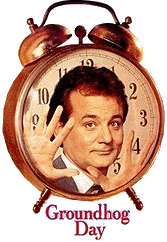Psychiatry’s Guide Is Out of Touch With Science, Experts Say
New York Times
By PAM BELLUCK and BENEDICT CAREY
May 6, 2013
Just weeks before the long-awaited publication of a new edition of the so-called bible of mental disorders, the federal government’s most prominent psychiatric expert has said the book suffers from a scientific “lack of validity.” The expert, Dr. Thomas R. Insel, director of the National Institute of Mental Health, said in an interview Monday that his goal was to reshape the direction of psychiatric research to focus on biology, genetics and neuroscience so that scientists can define disorders by their causes, rather than their symptoms. While the Diagnostic and Statistical Manual of Mental Disorders, or DSM, is the best tool now available for clinicians treating patients and should not be tossed out, he said, it does not reflect the complexity of many disorders, and its way of categorizing mental illnesses should not guide research. “As long as the research community takes the DSM to be a bible, we’ll never make progress,” Dr. Insel said, adding, “People think that everything has to match DSM criteria, but you know what? Biology never read that book.”
 Biology may have never read the book, but we saw the movie. In the classic, Groundhog Day, Bill Murray lives the same day over and over again. Each morning, he wakes up into the same day, but after a number of iterations, he started learning from the repetition and began to change things around about himself in each new version of the day. I’m not sure we’ve figured that out yet in psychiatry. We just keep repeating the same thing and [to quote the old definition of insanity] expecting different results. Picking up the story in 1970 [after the publication of the DSM-II in 1968]:
Biology may have never read the book, but we saw the movie. In the classic, Groundhog Day, Bill Murray lives the same day over and over again. Each morning, he wakes up into the same day, but after a number of iterations, he started learning from the repetition and began to change things around about himself in each new version of the day. I’m not sure we’ve figured that out yet in psychiatry. We just keep repeating the same thing and [to quote the old definition of insanity] expecting different results. Picking up the story in 1970 [after the publication of the DSM-II in 1968]: Establishment of Diagnostic Validity in Psychiatric Illness: Its Application to Schizophrenia
BY ELI ROBINS. M.D.AND SAMUEL B. GUZE, M.D.
American Journal of Psychiatry. 1970 126[7]:107-111.
… One of the reasons that diagnostic classification has fallen into disrepute among some psychiatrists is that diagnostic schemes have been largely based upon a priori principles rather than upon systematic studies. Such systematic studies are necessary, although they may be based upon different approaches. We have found that the approach described here facilitates the development of a valid classification in psychiatry…
Dr. Spitzer’s compromises, reliability for validity and atheoretical/descriptive for etiology produced a very long day. The diagnostic system had several revisions, refinements of the DSM-III, and the DSM-IV set a record, lasting 19 years [1994-2013]. In 2002, the future chairs of the DSM-V [as it was then called] announced that Spitzer’s compromise had outlived its usefulness and proposed to move the diagnostic system closer to mainstream medicine by including the biological findings with the diagnoses – a biomedical diagnostic system for psychiatry was on the way. And so we started our day over once again. That same year, Tom Insel took over the NIMH and became a cheerleader for Clinical Neuroscience, his renaming of psychiatry.
We all know what happened. The psychopharmacology bubble burst and clay feet were exposed far and wide – in industry, in academia, just about anywhere anybody looked. The DSM-5 [as it had become] Task Force had to announce that its plans biomedical had been premature, and everything else went equally badly. They were amply warned by their predecessors [Drs. Robert Spitzer and Allen Frances] that they were headed for big trouble, but instead of listening, they resorted to Ad Hominem defenses. It has been a bad version of that same old day, the one that lasted from 2002 until this week. No question about that.
Although Insel’s blog was reported as a bombshell and potentially seismic, NIMH’s decision to scrap the DSM criteria has been public for several years, says Bruce Cuthbert, director of NIMH’s Division of Adult Translational Research and Treatment Development. In 2010, the agency began to steer researchers away from the traditional categories of DSM by posting new guidance for grant proposals in five broad areas. Rather than grouping disorders such as schizophrenia and depression by symptom, the new categories focus on basic neural circuits and cognitive functions, such as those for reward, arousal, and attachment…
 The first time I wrote about Insel’s blog on this, I called it old news…. That was an overstatement, it’s not any kind of news at all. It’s political positioning. Dr. Insel hears a great sucking sound over at the APA offices and he’s trying to get out of its way before it sucks him down with it. His NIMH was a major partner with the APA in the DSM-5 conferences and planning. His RDoC was born in that failure as a way to keep the dream alive when the APA failed. He’s aiming to replay that same day with the same theme over one more time. In the movie, there came a time when Bill Murray woke up and it wasn’t the same day he’d been reliving over and over. It was a new day for real. We could use one of those in psychiatry about now rather than Dr. Insel leading us on the same old charge to nowhere…
The first time I wrote about Insel’s blog on this, I called it old news…. That was an overstatement, it’s not any kind of news at all. It’s political positioning. Dr. Insel hears a great sucking sound over at the APA offices and he’s trying to get out of its way before it sucks him down with it. His NIMH was a major partner with the APA in the DSM-5 conferences and planning. His RDoC was born in that failure as a way to keep the dream alive when the APA failed. He’s aiming to replay that same day with the same theme over one more time. In the movie, there came a time when Bill Murray woke up and it wasn’t the same day he’d been reliving over and over. It was a new day for real. We could use one of those in psychiatry about now rather than Dr. Insel leading us on the same old charge to nowhere…
The irony of your “Groundhog Day” reference is that the Bill Murray Character learns from his selfishness and shortsightedness, and after trying to kill himself many times, as his narcissism makes him first think death is better than change, he then figures it out.
Pity the APA and other associated organizations haven’t let go of that narcissism, as well as other features, yet to consider change. Unfortunately, and I know this will come across as harsh and rude (surprise from me, right?), why can’t these organizations commit some kind of organizational suicide (without direct harm to members or support systems to the organizations mind you) and hopefully once will be enough.
If anyone reads at my blog, my position about antisocial personality disorder in positions of power really is ridiculous to put up with these days. Maybe a stretch on my part to label organizations like the APA as antisocial, but, the direct risk of harm and frank dismissal of legitimate criticism and request for reevaluation by the organization does go beyond simple narcissism.
Even narcissists don’t actively go after other people simply for the thrill of harm or disruption. The antisocial on the other hand…
Dr. Mickey, I hope your reading that Insel is fleeing a sinking ship is correct. I’d like nothing better than to see that ship sink.
But — in politics as in life, when people realize they’re wrong, they usually rewrite history rather than admit it. I expect we’ll see the APA go on but off-load the DSM somehow, saying that was the plan all along.
Well, as long as we’re talking about sinking ships, my first thought when I read Dr. Insel’s comments was – he’s rearranging deck chairs on the Titanic. In this case, tho, lives would be saved if the bloody thing sank.
…”they were amply warned”…
they would not listen
they did not know how
perhaps they’ll listen now
perhaps they never will
Those who don’t know how to listen, shall be left behind. They are worse than useless, bloodsuckers, parasites, APA a nest of vipers, as our NPF(A)
I come from church. A burial. A gifted musician, 33 years, in an out of psychiatric wards for 10 years, trying to be heard, to be free of the meds. Family and friends played his songs and Vincent, starry starry night, by Don McLean.
They would not listen, they’re not listning still
perhaps they never will…
The fish rots from the head. New paradigms (revolutions) come from people on the ground.
Psychiatry has a Pinocchio syndrome. Insel’s nose is getting awfully long, and there is nothing he can do to become “real”. It would be nice if “wishing on a star” exhausted the KOLs as much as it’s exhausting everyone with the bad fortune of being subject to the effects of their wishful thinking; but these “thought leaders” are made of wood and are rich far beyond all reason. “The market” is a playground for liars and grifters.
what are the politics of the NIMH RDoc-DSM5 decision…
what does it mean to academic psychiatrists..
what does it mean to research grants…
what does it mean to pharma, insurers?